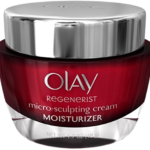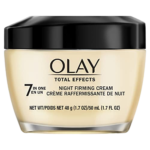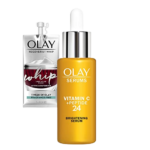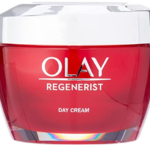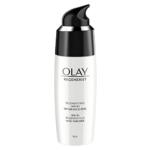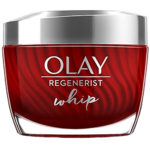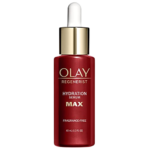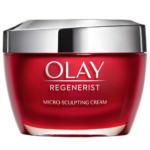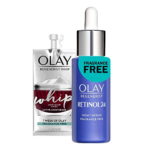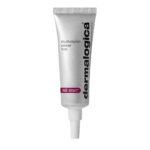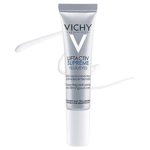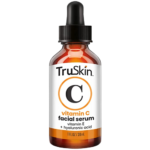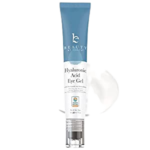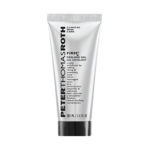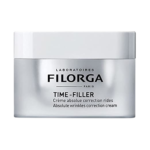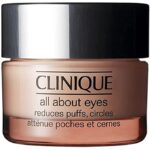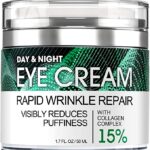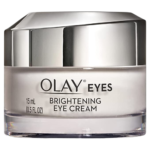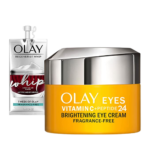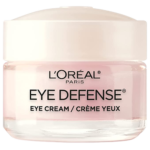The Top 25 Skincare Questions Answered

By: L. Smith
Get our free skincare guide and learn how to create the perfect skincare routine.
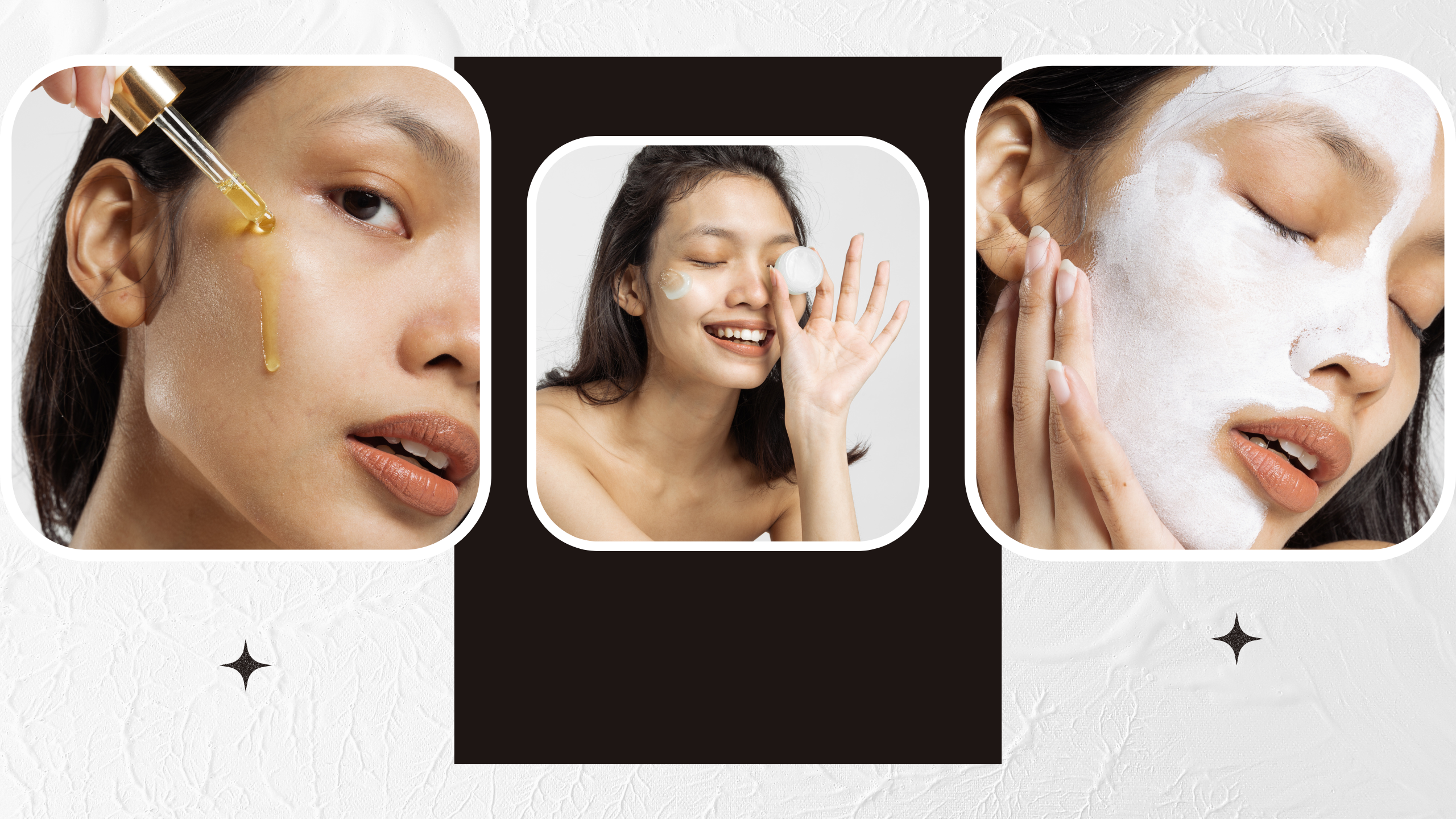
There are nine main types of skincare products. These include daily products, weekly products, and monthly (or less) products. These products are (1) Vitamins (2) face wash/cleansers (3) Toner (4) Moisturizers (5) Eye creams (6) Exfoliates (7) SPF/sun protection (8) Serums and (9) Masks. Creating a skincare routine that includes these products can help you avoid breakouts, and save time and money otherwise spent dealing with the problems that these products help prevent. Note: Not everyone needs every product. Download our free skincare guide for help choosing the right products for your skin type
2. What Is The Order Of A Skincare Routine?
The order in which you apply your skincare products can have a significant impact on the health of your skin. Applying products in the correct order helps to optimize each product’s benefits by ensuring they are able to penetrate effectively.
The correct order for product application, with some exceptions based on skin type and condition, is cleanser, toner, serum, eye cream and moisturizer. Vitamins can be taken before or after applying other skincare products . First, we have the cleanser. Cleansing your skin helps remove pollutants and leaves your skin feeling fresh and ready to absorb the other products in your skincare routine. Next up is toner. The role of a toner is to remove any traces of impurities left behind by the cleanser, balance our skin’s ph levels and prepare our skin for the next products.
Serums are the third step in your skincare routine. This product comes in either a liquid or cream-based formula. Serums are particularly effective at penetrating deep into your skin’s layers and providing a high dose of active ingredients. Eye cream is step four. Our under-eyes are very sensitive to aging, so it is important to target this area with a specialized eye cream, that includes anti-aging ingredients such as retinol, peptides, and hyaluronic acid.
The next product in your skincare routine should be a moisturizer. This is the product that will seal in all the other products you have applied and leave your skin feeling hydrated and fresh. It’s important to include a moisturizer that protects your skin during the day and at night while you sleep. Last, but not least, we have the vitamins. Vitamins and other nutrients play a key role in maintaining your skin’s health and appearance. Daily vitamins are recommended to bridge any nutritional gaps. To get the best results, choose vitamins based on what your skin and body needs. Weekly or monthly facial masks can be used to remove toxins that build up over time.
3. Is Cleansing Your Face Important?
After a long day at work, in traffic and dealing with all sorts of different people, you’ve picked up a lot of impurities on your skin. When you get home and jump into bed, you don’t want those impurities to be trapped in your pores. This can lead to clogged pores and blackheads and even more serious problems if you don’t clear them out regularly. Cleansing is the first step in your skincare routine, and it is meant to remove the day’s impurities, makeup and excess sebum from your skin. Your skin will thank you!
4. What Is The Difference Between Cleansing And Exfoliating?
Cleansing is the first step in your skincare routine and is meant to remove the day’s impurities, makeup and excess sebum. It helps to prepare the skin for other products in your routine. Every 30 days or so, your skin sheds old cells to make space for new ones. When dead cells don’t fall off completely, dry, flaky spots and clogged pores are likely to form. Exfoliation helps to prevent this.
5. What Is Face Toner For?
There are two main types of toner. A hydrating toner is designed to add hydration to your skin and a balancing toner is best for those with oily or acne-prone skin. Toners are best used in the morning, as they are refreshing and can help to prepare the skin for the day. Look for products that have natural ingredients and a low pH.
Toners are applied right after cleansing your face and before serums and essences. One of the main functions of a toner is to help prepare your skin for the rest of your skincare products. Toners help to close the pores, balance the pH of your skin and help your other skincare products work more effectively. Using a toner is an effective way of getting rid of pimples and keeping your skin clean and clear. Some toners contain ingredients that are beneficial for acne-prone skin. Using a toner regularly can reduce the appearance of pimples and prevent future breakouts.
6. Should You Wash Your Face Before A Shower?
Yes, you can definitely shower before you cleanse. In fact, many people prefer to do just that because warm water opens up your pores, preparing them for the products in your skincare routine.
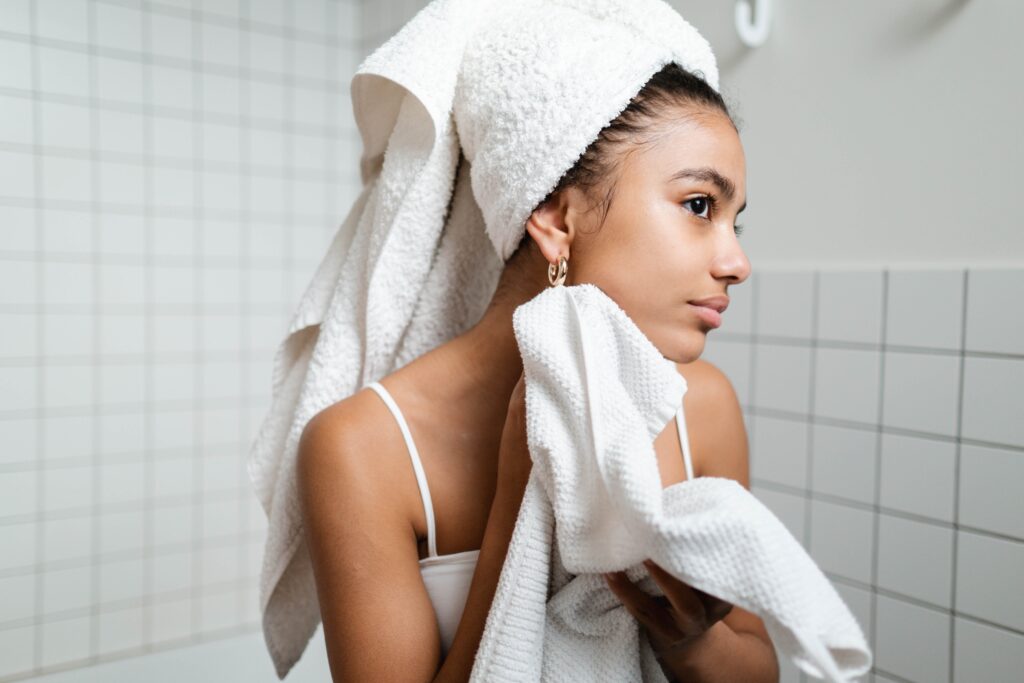
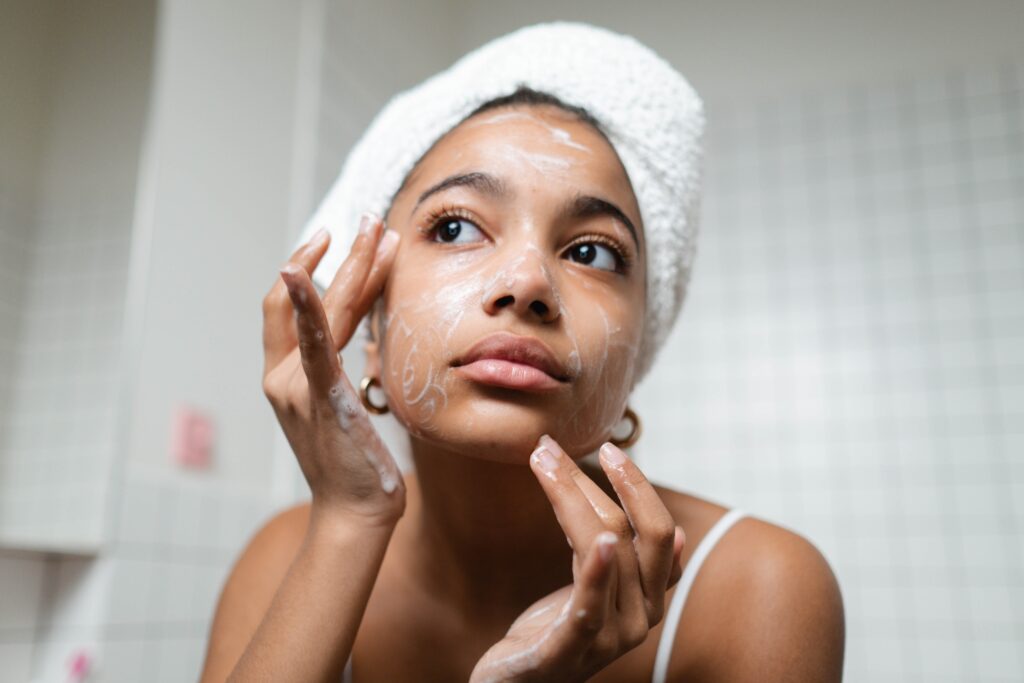
Ingredients To Look For In Skin Care Products
Retinol is a derivative of Vitamin A, which is essential for slowing down aging. Vitamin A is usually associated with acne, but retinol actually reduces oil production and skin redness by promoting the production of a protein called collagen. Collagen gives skin its strength and structure, and helps it stay elastic, meaning wrinkles and sagging skin are less likely to be a problem. Retinol is widely used in anti-aging products and has been shown in studies to improve the look of fine lines and wrinkles. It is one of the best ingredients for slowing down the signs of aging, but you need to be careful using it if you’re under 25 as it can actually cause breakouts.
Vitamin CVitamin C is an antioxidant that is essential for healthy skin. It is often used in skincare products because of its ability to brighten the complexion. When applied topically, it can improve the look of redness, dark spots, and uneven skin tone. Vitamin C is one of the best ingredients for improving the look of uneven skin tone and reducing the look of dark spots and sun damage. It has anti-aging properties that can help keep fine lines and wrinkles at bay.
GlycerinGlycerin is a humectant, which means it attracts water from the air and draws it into the skin. It is a common skincare ingredient that is used to keep skin hydrated. Glycerin is one of the best ingredients for helping dry or sensitive skin because it can provide a protective barrier and prevent water from evaporating. It is a common ingredient in moisturizers and facial masks because it is very effective at keeping the skin hydrated and preventing the formation of wrinkles and fine lines. It is very safe, even for those with acne-prone skin.
Vitamin EVitamin E is another powerful antioxidant that is often found in skincare products because of its ability to protect the skin from free radicals that cause premature aging. Vitamin E is one of the best ingredients for preventing wrinkles and protecting the skin from UV damage. It promotes collagen production and has anti-inflammatory properties that can help calm red, irritated skin. Vitamin E can be found in many skincare products, including moisturizers and serums, and it is recommended that you use a formula that contains between 100 and 400 IU of vitamin E.
Coenzyme Q10Coenzyme Q10 is a naturally occurring compound that is produced by the body. It has been used in skincare products because of its ability to promote collagen production and improve the appearance of fine lines and wrinkles. It is often used in anti-aging formulas because it has been shown to reduce lines and wrinkles, increase skin elasticity, and improve the look of uneven skin tone.
AHAs and BHAsAlpha hydroxy acids (AHAs) and beta hydroxy acids (BHAs) are two potent skincare ingredients that are often found in anti-aging and skincare products. They are two of the best ingredients for preventing and treating breakouts because they exfoliate the skin, removing dead skin cells and unclogging pores. This can be very effective for treating acne, as it can reduce oil production, unclog pores, and prevent breakouts from forming. These ingredients work by gently lifting away dead cells from the skin’s surface, revealing new, healthy cells below. This is effective for keeping the skin looking youthful, preventing wrinkles, and treating acne.
7. What Skincare Products Not to Mix
Fragrance
Fragrance is a tricky skincare ingredient. You’ll find it in everything from deodorant to shampoo and of course, in skincare products too. It’s a synthetic blend that’s used to create a certain smell. Unfortunately, it’s often used to cover up the smell of other chemicals, which makes it even more dangerous. Fragrance in skincare is the number one cause of allergic reactions. It can cause redness, irritation, acne, and other issues in sensitive skin types. When it comes to eye-related skincare I recommend using fragrance-free skincare products whenever possible. Our eyes are especially sensitive to products that include fragrances.
Oils and Exfoliants Together
Many people use oils and exfoliants together to boost the results they get from their skincare. But oils and exfoliants don’t play well together. Using two extremely drying ingredients together is a huge no-no as it will strip your skin of its natural oils and leave it dry, damaged and irritated. If you’re using an exfoliant and an oil at the same time, be sure to use them on opposite sides of your face. You should make sure to use a very gentle exfoliant such as a BHA or an AHA as they’re less harsh and cause less damage than manual exfoliators.
Retinol and AHA Together
Retinol and AHA are two of the most popular skincare ingredients. They’re used to reduce fine lines, fight dark spots, and even out skin tone. But they don’t play well together if you use them at the same time. Retinol and AHA both speed up cell turnover and they both cause irritation. If you use them at the same time, you can end up with a red, irritated, and flaky face that’s really uncomfortable. Using them together can also lead to breakouts, redness, and skin sensitivity.
There are other combinations that should be avoided, so be sure to do your research before adding new products to your skincare routine.
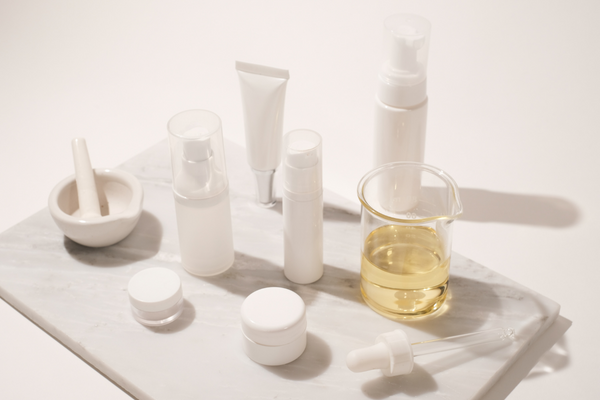
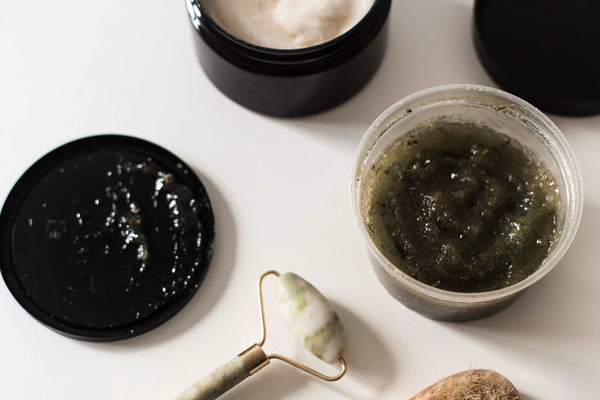
8. How Often Should I Use Retinol?
Retinol is a powerful ingredient that can be very effective when it comes to anti-aging skincare. Retinol is a chemical exfoliant, meaning it promotes cell turnover to encourage newer and healthier skin cells to replace older and damaged ones. It also helps to improve the overall texture of your skin. When used regularly, retinol can help to minimize the appearance of sun damage, hyperpigmentation, and acne scarring.
It’s best to start off slow to build up a tolerance to retinol, and to use it at night when your skin is in recovery mode. It’s best to use retinol every other night (or every third if you’re starting off slow) so your skin can recover and build up a tolerance to the ingredient. It’s a good idea to pair retinol with other skincare products, like a good moisturizer to help minimize the risk of adverse effects. Alternatively, you can use products that include Retinol as one of their key ingredients, instead of using pure Retinol. Products that include Retinol are created to be safe as long as you follow the usage directions.
9. What Skincare is Safe During Pregnancy?
In order to keep your skin healthy and balanced during pregnancy, you will have to change your skincare routine. Keep in mind that the skin is more sensitive during pregnancy and that you will have to change the products you use. You will have to be careful with what you use, as you do not want to expose your baby to harmful chemicals. You can do this by reading the labels on skincare products. Look for the following things: ingredients that are non-toxic and hypoallergenic, the absence of fragrance, preservatives, and dyes, and a product that is free of parabens.
As your skin is more sensitive and prone to breakouts during pregnancy, it is best to switch to a toner that is gentle and free of alcohol. Toner with Vitamin C is a good choice. Vitamin C is an excellent pH-corrective ingredient that is great for reducing the signs of aging on the skin. Vitamin C is great for reducing skin inflammation and irritation. Pregnancy acne can also lead to clogged pores and blackheads on your face. In order to prevent that, try using face masks that are enriched with charcoal and clay once a week. These will help unclog your pores, detoxify your skin, and keep your face fresh.
During pregnancy, because your body produces more oil, you may find yourself oilier than usual. Therefore, it is important that you switch to a cleanser that is designed to remove excess oil and impurities from the skin while leaving it hydrated and toned. Many expectant mothers also complain about dark circles and puffy eyes. And while you can’t completely get rid of those, you can definitely lighten them up with a good eye cream. Of course, we all know the importance of sunscreen. But, during pregnancy, you should always choose a sunscreen that is free of chemical filters and is the least toxic for your skin.
10. Daytime and Nighttime Skincare Routine
A daytime skincare routine is when you focus more on hydration, anti-aging, and protection from sun damage. When you are sleeping, your body is restoring and repairing itself and that process is more intense than during the day. So, during the day, your skin mainly needs SPF, hydration and anti-aging ingredients, while at night it needs more intense ingredients to repair and restore itself. A good cleanser, toner, moisturizer, and SPF are the bare minimum. An eye cream is also useful for keeping the delicate skin around our eyes soft and hydrated. A serum is a good addition if you’re looking to reduce blemishes, boost hydration, brighten your skin, or fight signs of aging. And adding vitamins that include biotin and collagen is useful if you need to boost your daily nutrition levels and improve the overall health of your skin. Both Biotin and Collagen contain a lot of amino acids and help in creating new proteins. Healthy skin, hair, and nails are all made up of proteins. Biotin and Collagen help to keep our skin smooth, soft, young-looking, wrinkle-free and with a healthy glow.
A nighttime skincare routine is when you focus more on exfoliating (gently removing dead skin cells), and deep hydration, while still focusing on anti-aging. Some anti-aging creams can actually make your skin oilier, so you have to be careful which ones you use. Exfoliating can be done with gentle scrubs or even a face brush. Your nighttime routine should start with a good cleanser or make up remover, followed by toner and moisturizer. And again, if you’re treating specific skin care issues, including your serum in your nighttime routine can help speed up results.
11. How To Find Out What Skin Type You Have?
At the end of the day, it’s important to take note of your particular skin type because it can help you determine the appropriate skincare routine. Your skin type is determined by how dry, oily, sensitive, or prone to acne your skin is. There are six main skin types – Dry Skin, Oily Skin, Sensitive Skin, Normal Skin, Combination skin, and aging Skin. The best way to determine your skin type is to examine your skin. Start by looking at your skin in the mirror. Do you notice large pores, dry patches, or redness? Does your skin seem oily? These are all signs that point to your skin type..
- Dry skin may be rough, flaky, or even scaly. It may become itchy or irritated at times. It is commonly tight and less elastic, and it may have visible lines.
- Oily skin produces an excessive amount of sebum, causing it to look shiny and feel greasy around the chin, nose and forehead. If you have oily skin, you may have larger pores, acne blemishes, and outbreaks.
- Those with combination skin suffer from both dry and oily areas, with the T-zone being particularly oily and the cheeks being either dry or normal.
- Normal skin has skin is balanced—it’s neither dry nor oily. Breakouts, flakiness, slickness, or tightness are rare. Pores are small, and sensitivity and blemishes are less likely to occur.
- People with sensitive skin may experience redness, burning, itching, or dryness. Skin vulnerability to external irritants and environmental factors, as well as certain ingredients, such as dyes or fragrance, may lead to these symptoms.
- The first signs of aging skin appear as fine lines and wrinkles, slight discoloration, dullness, dehydration, and reduced elasticity.
12. How To Tighten Skin Under Eyes
If you struggle with fine lines and wrinkles around your eyes, it’s probably because of how you’re treating your skin. You see, our skin is exposed to a lot of stressors throughout the day, and it’s during our downtime when we relax by going to bed that really impacts our appearance. So, if you want to treat dark circles and tighten the skin around your eyes, a night eye cream is a must.
Eye cream can help reduce the appearance of fine lines and fight against premature aging. Eye creams are designed to treat specific areas of the face, so using one specifically for the eyes addresses the sagging skin that tends to appear under the eyes. When shopping for an eye cream, look for one that contains peptides. These substances have been proven to increase collagen levels in the skin, which can help tighten the skin around the eyes, and reduce the appearance of fine lines and wrinkles. Peptides can also help promote blood flow and reduce the appearance of dark circles under your eyes. You can also try using an eye cream with caffeine. Caffeine is a substance that can help reduce swelling under your eyes, and make your skin look firmer.
13. How Do I Get Rid Of Dark Circles Under My Eyes Permanently?
There are a few things you can do to prevent dark circles and bags under your eyes. First, make sure you are getting enough sleep. Second, apply an eye cream or eye serum to your under-eye area twice a day. And lastly, avoid excessive caffeine and sugar intake. If you already have dark circles, you can use an eye cream with a lightening agent. You can also use an eye cream that contains peptides and antioxidants to help fight inflammation and hydrate the delicate eye area. For stubborn bags, try a caffeine-rich eye serum. You can also use an eye serum with brightening agents.
14. How To Get Rid Of Dry Skin On The Face
If you want to avoid dry skin, one of the best things you can do is stay hydrated. This is especially important during the colder months when the air is drier. Dry air can be very harsh on your skin and cause it to become dry and flaky. You can prevent this by drinking plenty of water to retain your skin’s natural moisture. Also, adding a humidifier to your home can help to rehydrate and moisturize your skin. Exfoliating is recommended for preventing dry skin. It works by removing dead skin cells and revealing a fresh, new layer. Dry skin may also be caused by eczema, psoriasis, and other skin conditions. Exfoliating products can help to manage these conditions as well.
Skin lotions are also an effective way to hydrate your skin and prevent dryness. Look for lightweight formulas that include hyaluronic acid or other skin-plumping ingredients to help trap moisture. If you’re prone to dry skin, avoid thick and heavy formulas that can sit on the skin and cause it to become even drier. It’s also important to cleanse your skin with the right products. Look for cleansers that are hydrating, non-drying, and fragrance-free. Avoid using products that contain alcohol, which can be harsh on the skin and cause dryness. Dry skin can be caused by a lack of vitamins, minerals, and nutrients within your diet. By adding extra supplements to your daily routine, you can help to boost your skin’s hydration and health.
15. How To Get Rid of Pimples
This might sound obvious, but regular cleansing is the best pimple control. Regularly cleansing your face will help you get rid of acne, prevent breakouts, and maintain a healthy skincare routine. It’s also important to drink plenty of water and maintain a healthy diet to keep your skin hydrated and clear. If you already have pimples, use a face mask once a week. This can help cleanse the pores and reduce oil and clear up pimples.
Natural masks usually work best for me. A baking soda and egg mask is a simple but effective mask to try. Baking soda has anti-inflammatory properties that make it a great home remedy for acne. It also helps to exfoliate the skin. It‘s anti-bacterial properties help get rid of excess oil, and it’s also a natural cleanser. Mix two tablespoons of baking soda with one egg yolk. Apply this paste on the affected area and leave it on for 15 minutes. The egg yolk in the paste will help moisturize the skin. Wash it off with lukewarm water. You can use this baking soda and egg mask once a week to get rid of acne, blackheads, and acne scars.<
Neem and sandalwood paste is also great home remedy for treating acne, pimples, blackheads, and whiteheads. Mix equal parts of neem powder and sandalwood powder. Add a few drops of rose water to this mixture. Apply this paste on the affected area. Leave it on for half an hour and wash it off with lukewarm water. If you have sensitive skin, it’s best to dilute neem and sandalwood powder with water before using it. Use this remedy once a week.
16. How To Do You Get Rid Of Blackheads?
There are many ways t get rid of blackheads. Here are 5 easy and effective ways you can try today.
- Exfoliating your face regularly is an easy way to remove dead skin cells that clog pores and lead to blackheads. An exfoliating facial scrub can be used to get rid of dead cells to reveal a brighter, clearer complexion. Choose a scrub that is free of harsh ingredients like alcohol and microbeads.
- Astringent toners are also effective for treating blackheads. When applied after you wash your face, an astringent toner helps to kill bacteria and close your pores. Using an astringent toner once or twice a day will help prevent new blackheads and T-zone breakouts.
- Cleaning your pores with a pore cleanser is also an effective method of getting rid of blackheads. Applying a cleanser that is specially formulated for pores will help to unclog your pores, prevent breakouts and treat your blackheads. Clinique Acne Solutions Clearing Cleanser and Clinique Acne Solutions Clinical Clearing Gel are excellent pore cleansers used by dermatologists to treat blackheads and breakouts.
- If you have specific blackheads or pimples that you want to clear up, it is best to use a spot treatment. It is best to use a spot treatment when the pimple is still small, so you can prevent it from turning into a blackhead. Clearasil Blemish Patches are great for targeting specific blackheads or pimples. You can wear them overnight and they will dissolve on your skin.
- Exfoliating masks can also be used once or twice a week to unclog pores, kill bacteria and prevent blackheads.
17. Can Diet Really Affect Acne?
When it comes to acne, you probably know that eating a diet rich in fruits and veggies is good for your skin. But can specific foods actually cause pimples? Working with lots of young people has taught me that eating habits have a huge impact on the frequency and severity of acne. So much so that when we see new clients, one of the first things we ask them about is what they eat. It’s not just about cutting out junk food and soda… there’s a lot more to it than that. Some foods we advise our clients to watch out for if they struggle with pimples are eggs, milk, dairy, processed foods, sugar, and carbohydrates.
Another tip we often give our clients is to take vitamin supplements to maximize nutrition. If you’re not getting enough nutrients in any area, supplements will help you to fill in those nutritional gaps. This is extremely important because the skin’s outer layer (epidermis) is the last to receive nourishment from the foods we eat. So any nutrient deficiencies will affect your skin’s health. To avoid nutrient deficiencies, eat a balanced diet, exercise regularly, and take targeted supplements to ensure you’re getting all the necessary nutrients.
18. What is the Best Skincare Routine For Acne?
When it comes to the best skincare routine for acne, less is more. This simple four step approach works wonders for acne-prone skin.
- Cleansers are the first step in any skincare routine for acne. Cleansers help remove excess oil, dirt, and impurities from your skin by lifting them off the surface. If you have acne, you want to make sure that any cleansers you use don’t cause excess dryness or irritation. Whole fat cleansers are a great option for acne-prone skin because they are gentle and nourishing.
- If you’ve tried different types of acne cleansers and moisturizers but you still break out, it may be time to incorporate an acne treatment into your skincare routine. Treatment products are powerful and can be effective when used as part of a skincare routine for acne. Because acne is caused by bacteria inflamed pores and excess oil, acne treatments focus on one or both of these issues.
- The next step in an acne skincare routine is to add light moisturizing creams. The best skincare routine for acne involves using gentle products that won’t cause irritation or make your acne worse.
- And finally, protect with SPF. Sun protection is a crucial part of any skincare routine for acne. The sun’s UV rays can cause significant damage to your skin, including premature aging and sunspots. However, these effects are particularly pronounced when you have acne. Using a daily SPF in your skincare routine for acne is the best way to protect your skin from the sun and prevent acne breakouts. Also, read the labels in your other skincare products. They may already contain enough daily SPF.
19. What is the Best Home Treatment For Acne Scars?
The best way to get rid of acne scars is to prevent the formation of new ones, as old acne scars fade with proper care. There are various ways to do this, but a good skincare routine is the best way to prevent the formation of acne scars. If you already have acne scars, you can use some home remedies to get rid of them.
Aside from your normal skincare routine, the first step in getting rid of acne scars is to exfoliate your skin. A good scrub removes the dead skin cells, dirt and excess oils, which would otherwise clog the pores and cause acne. The next step would be to use products that contain Vitamin C. Vitamin C is an antioxidant that works wonders on your skin by increasing collagen production. When used in combination with other ingredients, it can lighten the acne scars by lightening the dark spots. You can also try Vitamin E. Vitamin E is a powerful antioxidant that helps to reduce skin damage caused by acne and acne scars.
Turmeric is a great natural ingredient to help heal acne scars at home. Turmeric can be mixed with coconut oil or honey and applied to the affected area. Alternatively, you can also mix turmeric with a small amount of water and apply it to your skin. Aloe vera also has many properties that make it effective against acne and acne scars. When applied topically, aloe vera soothes the skin, heals acne and helps to reduce the appearance of acne scars. Raw honey is a mild anti-inflammatory agent that also helps to heal acne and acne scars. Aloe vera can be mixed with honey and applied to the affected area.
20. Can You Use Night Cream During the Day?
Yes, you can use a day cream at night. Day creams have anti-aging ingredients such as antioxidants and retinol. However, day creams are not as effective as night creams for repairing skin damage because they do not penetrate as deeply into the skin.
So, what’s the difference between a daytime and nighttime skincare routine? Isn’t it all the same? Well, yes and no. Depending on your skin and what you need, your routine might be different.
A daytime skincare routine is when you focus more on hydration, anti-aging and protection from sun damage. When you are sleeping, your body is restoring and repairing itself and that process is more intense than during the day. So, during the day, your skin mainly needs SPF, hydration, and anti-aging ingredients, while at night it needs more intense ingredients to repair and restore itself. So, a good cleanser, toner, moisturizer, and SPF are the minimum. Eye cream is also useful for keeping the delicate skin around our eyes soft and hydrated. A serum is a good addition if you’re looking to reduce blemishes, boost hydration, brighten your skin, or fight signs of aging. And adding vitamins that include biotin and collagen is useful if you need to boost daily nutrition and improve the overall health of your skin. Both Biotin and Collagen contain a lot of amino acids and help in creating new proteins. Healthy skin, hair, and nails are all made up of proteins. Biotin and Collagen help to keep our skin smooth, soft, young-looking, wrinkle-free, and with a healthy glow.
A nighttime skincare routine is when you focus more on exfoliating (gently removing dead skin cells), and deep hydration, while still focusing on anti-aging. Some anti-aging creams can actually make your skin oilier, so you have to be careful which ones you use. Exfoliating can be done with gentle scrubs or even a face brush. Your nighttime routine should also start with a good cleanser or make-up remover, followed by toner and moisturizer. And again, if you’re treating specific skin care issues, including your serum in your nighttime routine can help speed up results.
21. Do I Need Eye Cream?
The answer is an emphatic yes!! You’ll notice that many of the anti-aging skincare products these days have one thing in common: they all target your eyes as well as your face. This is because the eyes are an incredibly sensitive area of the face and are prone to showing the signs of aging earlier than other areas. However, this also means that eye cream is an especially useful skincare product that can help keep those fine lines and wrinkles at bay for longer. Read on to find out more about why you should invest in eye cream, what its benefits are, which ingredients you should look for, and how to best use it to get optimal results from your skincare routine.
Eye cream is an anti-aging skincare product that is designed to be applied to the delicate eye area. It is typically formulated with a heavier consistency than a face moisturizer, which allows it to penetrate more deeply into the skin and target wrinkles and fine lines specifically in that area. Eye cream can also help to reduce puffiness, dark circles, and under-eye bags, as well as protect the skin from environmental damage, such as UV rays. Eye cream is useful for anyone who is concerned about their eye area showing signs of aging before the rest of their face. Those with drier skin and wrinkles tend to find eye cream more beneficial than those with oily skin and few noticeable wrinkles. However, individuals with oily skin may also benefit from eye cream if they have dark circles, bags, or puffiness.
22. How To Reduce The Size Of Facial Pores?
If you want to reduce the size of your facial pores, you first need to understand what causes them to get larger in the first place. Pores get clogged due to the build-up of excess sebum, dead skin cells, and other impurities that accumulate in the hair follicles. When you have a lot of this crud building up in your pores, it can make your skin appear dull and unhealthy, and can cause your pores to look much larger than they actually are.
If you want to shrink your pores completely, before you try anything else, you’ll need to use a combination of these methods. Use a good quality face wash to cleanse your pores, then exfoliate your skin once or twice a week. Finish off your skincare routine with a good quality moisturizer. Making sure you have the right skincare products is the first step in reducing the size of your pores. You should choose products that are all natural, non-comedogenic, and made with the right ingredients. You can also reduce the size of your pores by regularly applying a face mask. Choose a clay mask that is designed to minimize pores, or try a mask made with baking soda to help unclog your pores.
Once you have your skincare routine in place, you should try a good quality face cream to reduce the size of your pores. If you’re not sure which one to use, look for a product that is labeled “BB Cream” or “CC Cream.” BB creams, better known as beauty balms, or blemish balms, are a combination of foundation and skincare products, are used to conceal blemishes as well as provide skincare benefits. CC cream or color correcting face cream helps to even out skin tones by neutralizing discolorations. Besides hydrating your skin, this product counteracts redness, dark circles, and other common skin issues to produce a more uniform appearance.
Another way to shrink your facial pores is by regularly exfoliating your skin. Exfoliating cleanses your pores by getting rid of dead skin cells and other impurities that are clogging your pores. Exfoliating your face on a regular basis can make a big difference in the way your skin looks and feels. It can help with breakouts, prevent blackheads, and reduce the appearance of pores. Exfoliating is most effective when done with a scrub made with natural ingredients. Look for ingredients like sugar, jojoba beads, Epsom salts, or coconut granules. These ingredients will gently cleanse your skin without being too abrasive.
Last, but not least, don’t forget the sunscreen. Not only does sunscreen protect your skin from sun damage, but it can help reduce the appearance of pores, too. UV rays can make your pores appear larger and cause your skin to age more quickly. Exposure to the sun can cause your pores to become clogged and enlarged, so be sure to use a strong sunscreen that offers both UVA and UVB protection. Exfoliating your pores can help shrink them, but you also need to protect your skin from damage caused by the sun. Using good sunscreen will help keep your skin looking healthy and young.
23. Where Is Sun Protection in Your Routine?
To get the best results, use SPF last, after applying your other skincare products. And remember, SPF is an important element in skin care, even on days when the sun isn’t as harsh. Even in the winter months, dangerous UV rays can still penetrate through the clouds and through windows, making you vulnerable to skin irritation and breakouts. It’s also important t to remember that some skincare products, like those with retinol, can make your skin more susceptible to sun damage , and sun damage may result in wrinkles and dark spots. On a positive note, many skincare products already include SPF in their formulas. So, before purchasing SPF, take a look at the ingredients list of your other skincare items. It’s possible that you’re already getting the SPF you need from other products.
24. How Often Should You Change Your Skincare Products?
The general rule when it comes to changing your skincare products is to do it when you notice a decrease in results or when the product expires. If the product is still providing you with great results, there’s no need to change it. However, if after a while you don’t notice any positive changes, it may be time to change your skincare products.
25. Are There Any Must-Have Rules When It Comes to Skincare?
Yes, there are some definite must-have rules when it comes to skincare. If you want to have clear, healthy skin, you should make cleansing part of your daily routine. Listen to your skin to help decide how often to use each product. I recommend using cleanser, sunscreen and moisturizer daily. Add new products one at a time. Then watch the results and make adjustments as needed. When you encounter pimples, blackheads, and other acne breakouts, use serums and spot treatments to quickly resolve them. In addition, you should exfoliate your skin at least once a week. These are the basic rules that will help you take care of your skin and keep it looking and feeling healthy.
